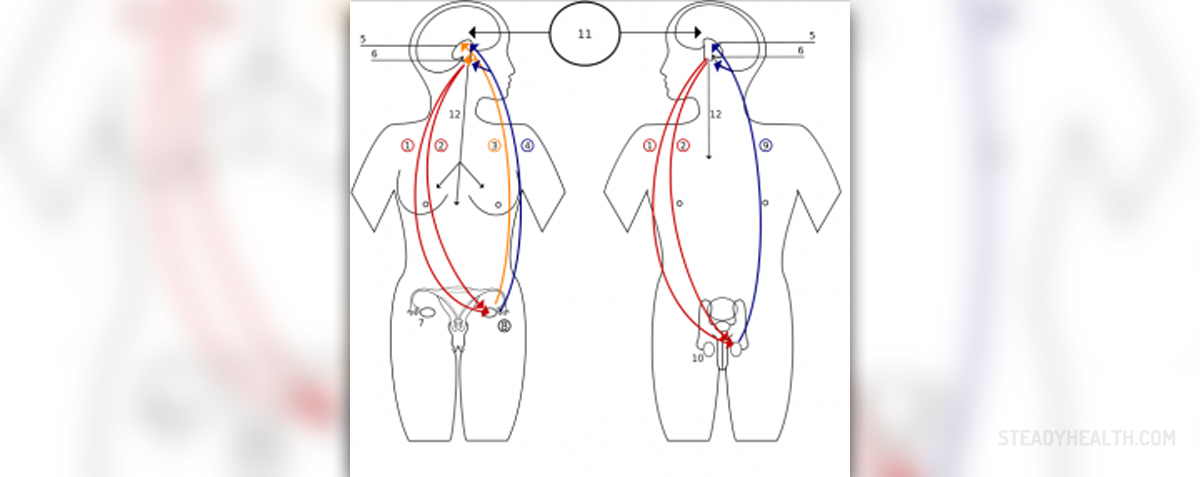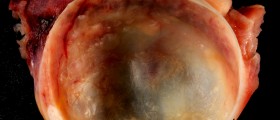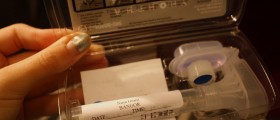
Hormones are chemical messengers in the body produced by endocrine glands. Even a small amount of hormones can cause significant changes in the body and result in different medical conditions. A change in the levels of estrogen is the main cause of hormone imbalance in women. Symptoms of hormone imbalance, women usually experience during menstrual cycle and menopause. These symptoms can occur due to different causes, but most commonly they result out of incorrect relationship between levels of estrogen and progesterone in the body. Variations in balance between estrogen and progesterone take place as women enter puberty, during menstrual periods and in menopause. As women enter puberty, the ovaries increase production of estrogen, progesterone and testosterone, a male hormone that stimulates hair growth. As childbearing years pass and women enter menopause, the ovaries begin to decrease their production of estrogen and progesterone, leading to symptoms of hormonal imbalance.
Symptoms of Hormone ImbalanceHormonal imbalance can cause variety of symptoms. A woman can experience one or more of these symptoms:
Hot flashes Night sweats Abnormal heart beat Irritability Loss of libido Mood swings Bloating Sleep disturbances Excess facial and body hair or hair loss Weight gain Water retention Heavy or painful periods Irregular periods Depression or anxiety Memory lapses Breast tenderness Skin problems or acne Changes in body odor Flatulence Poor concentration Dizziness Urinary tract infections Urinary incontinence Burning sensation on the tongue or roof of the mouth Vaginal dryness Increased dryness in the eyes and mouth Bone loss Nausea Fatigue Headaches or migraineCauses of Hormonal Imbalance
Hormonal imbalance can happen at any age. Most commonly, women experience symptoms of hormone imbalance due to use of oral contraceptive pills. These pills are made of synthetic estrogen, which causes estrogen dominance in the body and results in hormone imbalance. Too much of stress and overuse of cosmetics can also cause the symptoms. Environmental causes such as exposure to household chemicals and pesticides can too result in hormonal imbalance. The symptoms can be caused by poor diet and high intake of animal products that have excessive amounts of estrogen. Hormone replacement therapy is given to relieve symptoms of menopause with synthetic hormones but it can also increase the risk of hormonal imbalance.
Other Hormone Imbalance SymptomsHuman growth hormone is produced by the pituitary gland and changes in secretion of the hormone can cause hormone disorders. Elevated levels of growth hormone can cause gigantism and acromegaly. On the other hand, abnormally low levels of growth hormone can result in dwarfism. The pituitary gland also produces anti-diuretic hormone that plays a role in the regulation of water in the body. Overproduction of this hormone can cause concentrated urine and water retention while underproduction can lead to diabetes insipidus. Thyroxine is a hormone produced by the thyroid gland and it controls the rate of metabolism, heat production and oxidation of cells. Overproduction of thyroxine leads to hyperthyroidism, featured by weight loss, increased appetite, excessive sweating and palpitations. Underproduction of thyroxine results in hypothyroidism, which causes extreme fatigue and weight gain. Insulin is produced by the pancreas. Low levels of insulin can cause insulin deficiency and type 1 diabetes. Elevated levels of insulin cause decrease in blood glucose levels followed by dizziness, weakness and fatigue.

















Your thoughts on this
Loading...